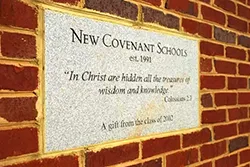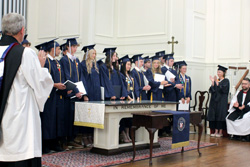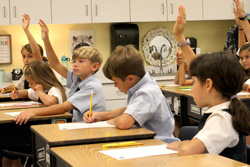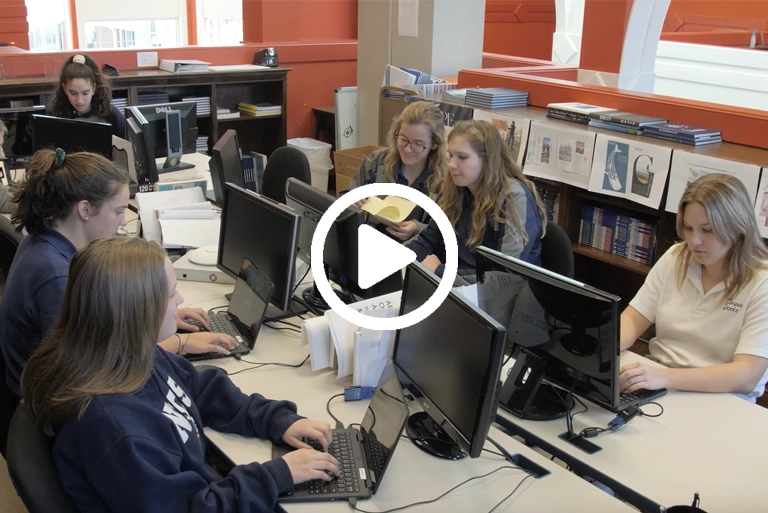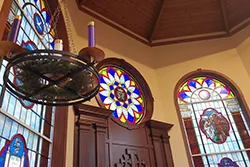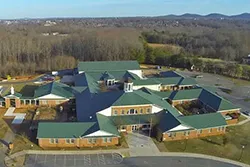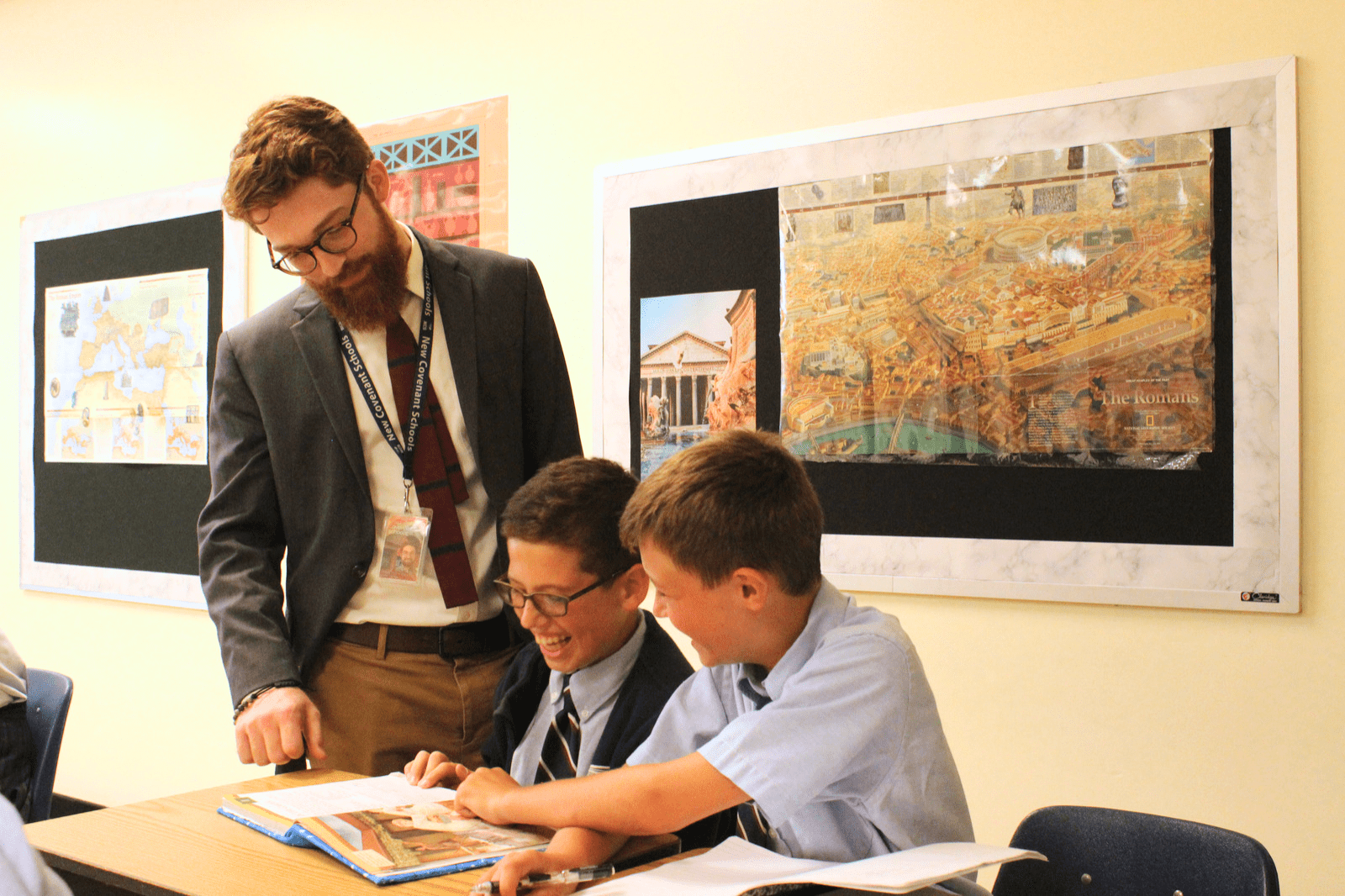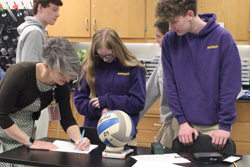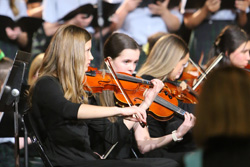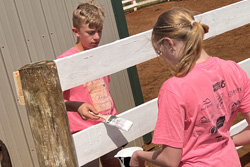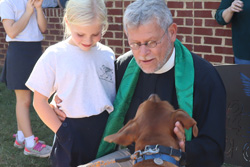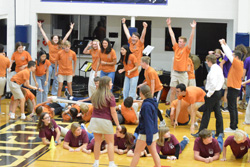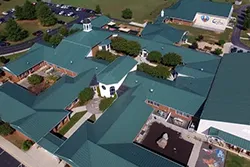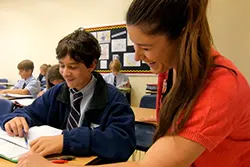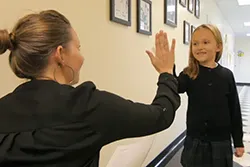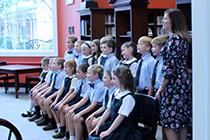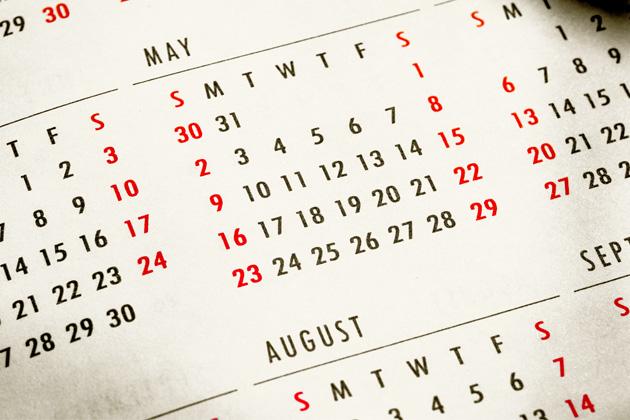It’s the time of year when the senior class is counting down the days to graduation. Time is a funny thing. It can fly by, or it can pass in an achingly slow fashion. It all depends upon your perspective. When this year’s senior class entered kindergarten I had already laid down a dozen “laps” at New Covenant. Then, in 2010 the young men and women of the class of 2023 joined me and together we have sojourned as traveling companions for another thirteen! Others joined us along the way, and soon we’ll celebrate all of them as they reach the milestone of graduation.
Graduation is both a conclusion and a commencement. One the one hand, it marks the official end of childhood; on the other hand it signals the beginning of young adulthood. The ceremony itself is important because in it we consciously transition from one to the other, mixing two profound sensations, simultaneously experiencing the glow of memories we share with family and classmates, and giddiness as we step into the future with increasing independence. In this moment, parents shake their heads and wonder how it went so fast. Students march triumphantly across the platform to receive their diplomas, wondering why it all took so long.
Children experience time differently than adults. A toddler takes a nap, and when he awakens, in his mind it’s a new day! It takes time for little children to come to terms with the days of the week. Once as a very young child my mother announced to me that we were going on a camping trip on the weekend. I asked when that was, and she told me it was “the-day-after-the-day-after-tomorrow.” It was only Tuesday and my young brain locked up, unable to process the fact that the big trip would begin on Friday. For me, that was eons away. Birthdays were the same way. Christmas took forever to arrive.
In the sixth grade I distinctly remember when it occurred to me that I was exactly half way through grade school. It had taken a long time to get where I was, and I was somewhat defeated by the prospect of enduring an equal length of time just to get on with life. College? I couldn’t conceive of that and wondered why anyone would keep going to school if they didn’t have to.
By middle school children begin to get the rhythm of passing weeks and months; they grasp seasons and in their minds time begins to shorten up slightly. When they reach college, they begin to get the rhythm of years, and they will be somewhat surprised at how quickly four years can slip away. They’ll move into a new job, maybe get married, and perhaps start families of their own. Then, as many of us know all too well, middle age will suddenly surprise them, and they will awaken to the rhythm not only of months, weeks or years, but of whole decades. Those of us who are already there strain to remember what we were thinking way back in our twenties and thirties, and old photographs suggest that we might have been entirely different persons altogether.
When I contemplate the early chapters of Genesis and read the stories of the antediluvian world, I marvel at the recorded life spans—some 600, 700 or 800 years. Methuselah lived to be 969! These people had the rhythm not only of years and decades, but that of whole centuries! With age comes perspective, and the longer we live—if we apply our hearts to wisdom—we can begin to imagine the divine point of view, in which a thousand years is but as yesterday. Time teaches us to wait. Time teaches us to be patient. Time teaches us to think more like God himself. If we’re intentional, we can number our days and, looking back, we can detect his providential hand in the affairs of our lives.
We’re not just counting down the days to graduation with the class of 2023, we are numbering them and applying our hearts to wisdom.

